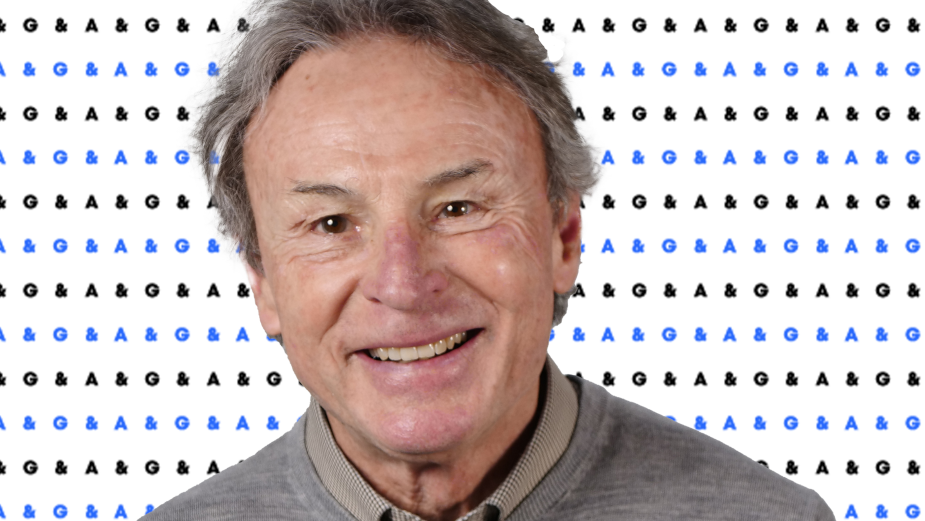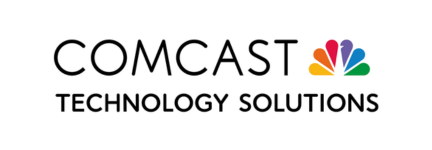
Production Line: Breaking Tradition & Upholding Ambition with Billy Near

William 'Billy' Near is a director of integrated production at Allen & Gerritsen (A&G) and leads all print, motion, and digital content production for both Boston and Philadelphia offices.
He graduated from Boston University Cum Laude with a degree in English literature and joined the industry early on as a music video producer at a production company in Boston. Working his way up, Billy became an agency producer at Arnold Worldwide, where he produced national campaigns for Titleist, The Hartford Insurance Company, Bell Atlantic, ESPN and more. He also founded his own production company, Populuxe Pictures: a three-director shop which enjoyed a brief spout of success.
Billy has years of invaluable experience in the field, making him a great asset at Emerson College, working as an adjunct faculty member and teaching a course in content creation and collaboration. Originally born just outside of New York City, he now lives west of Boston with his wife and four children.
LBB> What lasting impact has the experience of the pandemic had on how you and your agency think about and approach production?
Billy> The first thing I can tell you is that it made everything harder. We didn’t shoot much original content over the first six-10 months of the pandemic, when things were really scary and there was lots of uncertainty; it required us to reconcept with existing footage.
When we finally did get back on set, the COVID protocols were really strict. The process didn’t change, but the approach changed. You’re still taking a project from beginning to completion, whatever that project might be, and whatever medium you’re working with, but it took much longer. Clients didn’t necessarily understand that – they felt that everything was the same. We had to convey the message that they needed to have more patience, and educate clients on the fact that the pre-pandemic timelines they were used to are no longer applicable.
LBB> What’s your own pathway to production? When you started out, what sort of work were you producing and what lessons have stayed with you in that time?
Billy> When I graduated from college, I really didn’t know what I wanted to do. I was an English major. I thought I might write, but that was a bit tricky right out of the gate as a 21-year-old. However, I did have a background in music, I played in bands on and off for three years, and I always had a love of photography.
I found my way into the world of film production and got hired at a local film production company here in Boston in this brand new category – music video production. I put my head down and spent three months trying to get in the door with the music industry. Finally, we landed a music video project for a rhythm and blues artist. We produced it, it turned out great and ended up on NBC Friday Night Videos. It got us known in the business, and a couple years later I was producing videos for Aerosmith. That’s how I started – I whittled my way in and worked hard at it.
LBB> There are so many models for the way production is organised in the advertising industry - what set-ups have you found to be the most successful and why?
Billy> I’ve been able to manage some cool global pieces of business - Jack Daniels, for example. I also worked on Titleist, and produced Tiger Woods’ first commercial in 1997, going on to work with every pro golfer you can imagine. In my role here at Allen & Gerritsen as director of integrated production, I work on every client the agency has and everything that they want to make. That’s why we changed the name of the department from Motion to Integrated Production — integrated production is what we do.
LBB> How important is it to you that there is diversity across all partners on a production? Do you have any measures to promote diversity when it comes to production?
Billy> Diversity is at the forefront of our minds when it comes to what we make here at Allen & Gerritsen. Jennifer Putnam, our CCO, was very big in Free the Bid, a movement focused on bidding for women directors and editors. This has become a standard, and it’s broadened – we’re extremely aware of who we’re hiring and what their backgrounds might be. The goal is to be as diverse as possible – the more diverse, the better the project. Projects can always benefit from diversity. When I first started, you’d walk on a film set and it would be all white men. Eventually we started to see more representation of women, people of colour, etc. Now when you walk onto a film set, it’s a cross section of society. It’s also about accessibility. When I started, a film set was a very expensive proposition. Now, a talented filmmaker with an iPhone can make a film.
LBB> What are your thoughts on the involvement of procurement in production?
Billy> Procurement helps us be smart about who we’re looking to partner with and who we’re choosing to work with. We’re a lot more thoughtful about the way we source jobs than we used to be. If there’s a way to bring more diversity into a job, we love to see that, and procurement
teams can be effective partners in that effort.
LBB> When it comes to educating producers how does your agency like to approach this? (I know we’re always hearing about how much easier it is to educate or train oneself on tech etc., but what areas do you think producers can benefit from, more directed or structured training?)
Billy> The best way to learn how to become a producer is by working with one and learning from them in a professional environment, through paid internships or apprenticeships. Additionally, I would say that my network is very important and that networking is essential in this industry. In a way, it’s simple – the longer you do it, the better your network is.
LBB> Clients’ thirst for content seems to be unquenchable - and they need content that’s fast and responsive! What’s the key to creating LOTS of stuff at SPEED - without sacrificing production values? Is it even possible?
Billy> There’s content, and then there’s good content. The best content is the kind that leaves a mark and stays with you. Content that tells a story – I’m a big fan of storytelling. If you need something fast, it should be a simple idea. If it’s a big complicated idea, that’s fine, but it can’t be fast. Your project can be good, fast or cheap. Pick two – you aren’t going to get three.
LBB> What’s the most exciting thing about working in production right now?
Billy> Getting to make things that you’re proud of. It’s really simple. Looking back on what we’re making and what we’ve made, the pandemic made it difficult to make content. Our campaign for UniFirst coming out of covidis something to really be proud of. Making things I'm proud of on behalf of this agency is what brings me back and excites me for the future.















